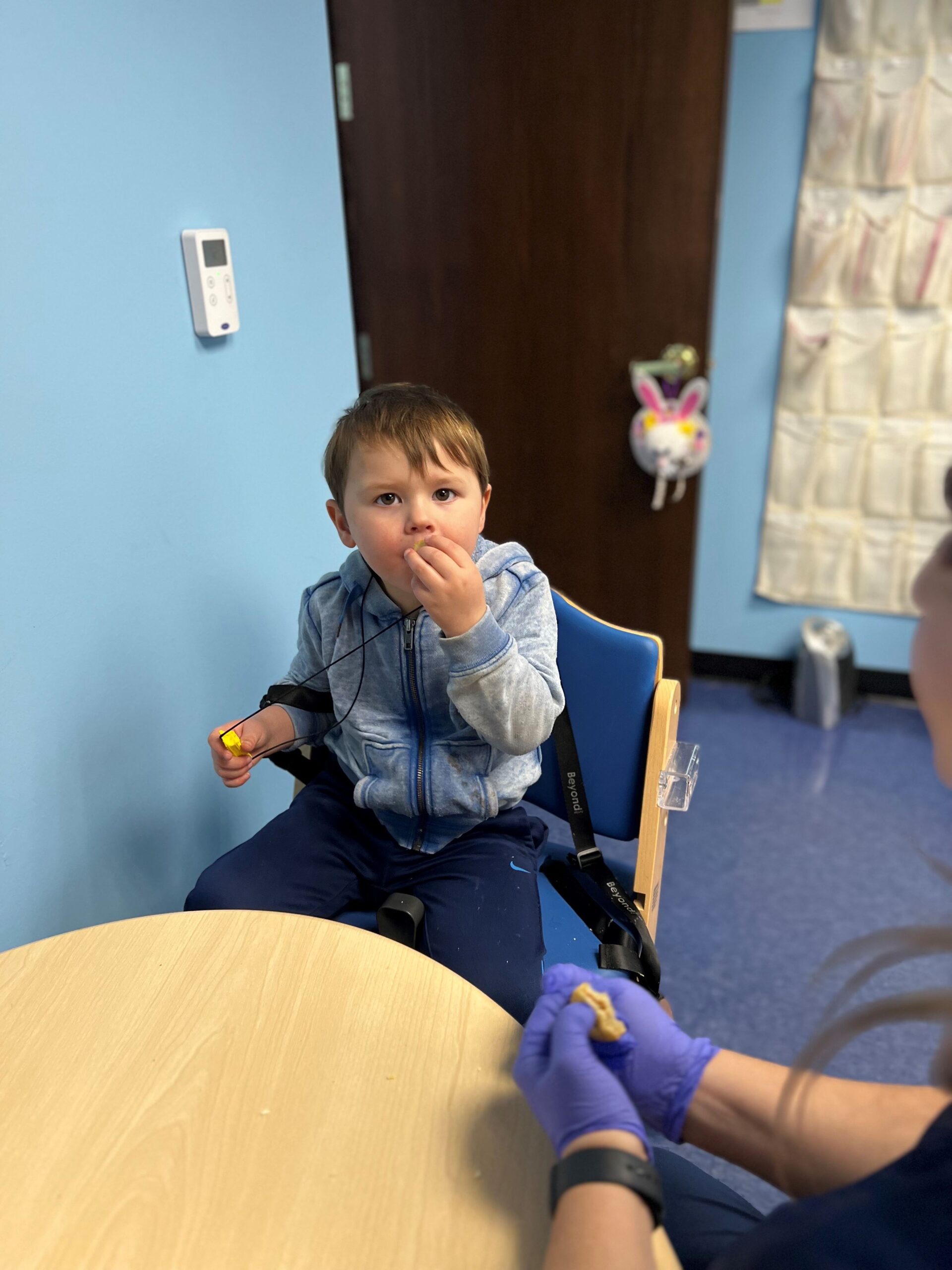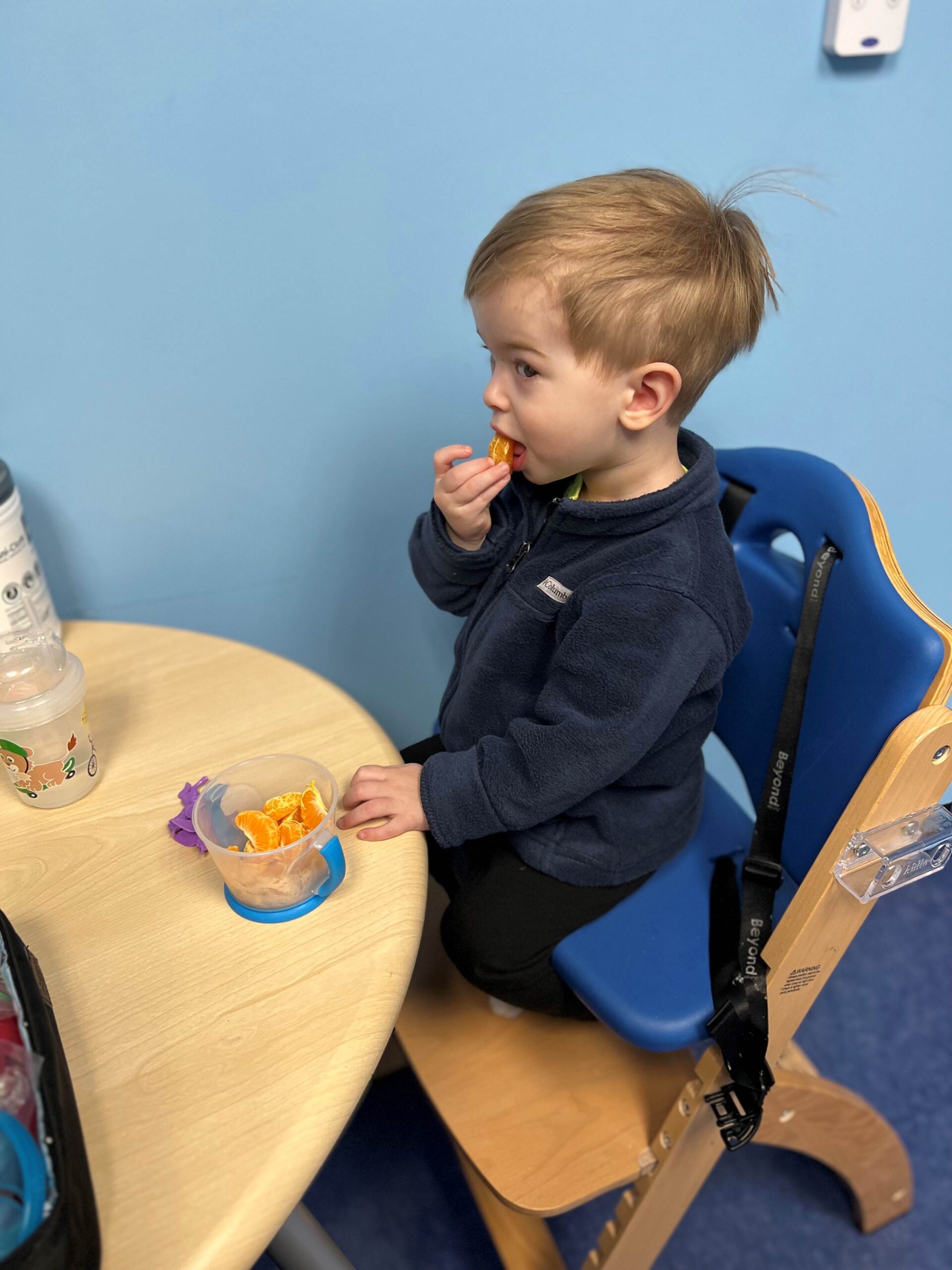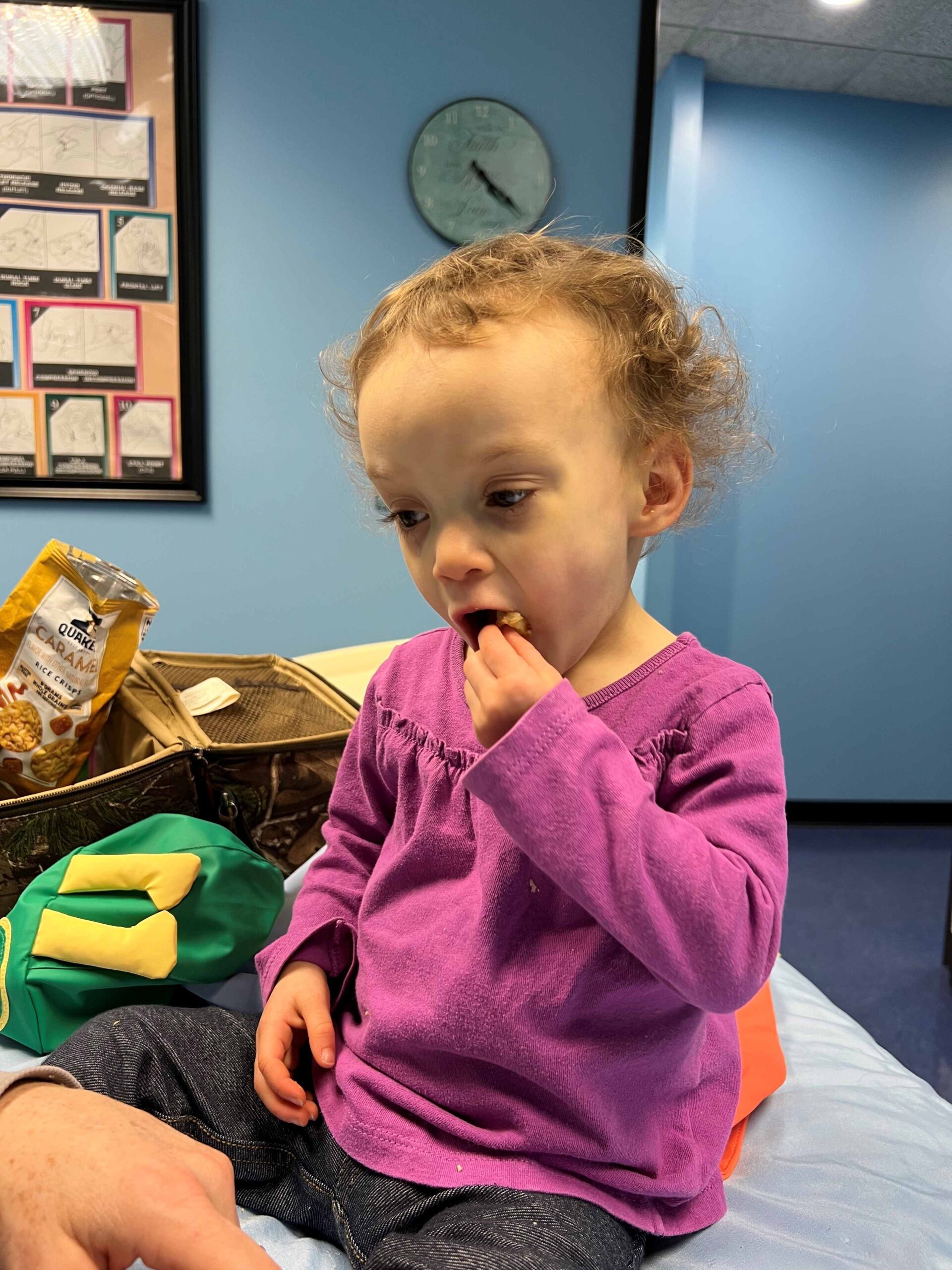The holiday season is a magical time filled with family gatherings, festive decorations, and lots of delicious food. However, for parents of picky eaters, the holidays can bring extra stress and anxiety. With all the new dishes, unfamiliar textures, and different eating environments, a child who already struggles with picky eating may have an even harder time at the dinner table. The good news is that there are strategies to help ease these mealtime challenges, especially with the support of pediatric feeding therapy and occupational therapy at Michigan Pediatric Therapy in Farmington Hills, Michigan.
Let’s dive into common picky eating issues, particularly during the holidays, and we’ll provide some expert tips to help parents and caregivers create a positive experience. We’ll also explore how working with a feeding therapist like ours can make a significant difference in overcoming these challenges.

Why Are the Holidays Challenging for Picky Eaters?
For children who are picky eaters, the holidays can feel overwhelming for a variety of reasons:
- New Foods: Holiday meals often consist of traditional dishes that your child may not have been exposed to before. The change in the menu can cause discomfort and anxiety for a child who prefers familiar foods.
- Different Environment: Family gatherings, crowded tables, and unfamiliar settings can create sensory overload, which may make a child feel uneasy during mealtime.
- Pressure to Eat: Well-meaning relatives might encourage or pressure your child to try new foods, which can increase their resistance and make the situation more stressful.
Picky eating during the holidays is not uncommon, but it can be managed effectively with the right approach.

What Is Pediatric Feeding Therapy?
Before jumping into specific tips, it’s important to understand how pediatric feeding therapy plays a role in addressing picky eating. Feeding therapy is designed to help children who struggle with eating challenges, including those who are extremely selective about what they eat.
Children may experience feeding difficulties due to several reasons, such as sensory processing issues, oral-motor delays, or negative mealtime experiences. Our occupational therapists are trained in feeding therapy strategies to work with children to improve their ability to accept and try new foods in a positive and stress-free way.
Common Feeding Therapy Techniques:
Desensitization:
Oral-Motor Skills:
Creating Positive Associations:

Tips for Managing Picky Eating During the Holidays
1. Plan Ahead and Prepare Your Child
One of the best ways to manage picky eating during the holidays is to prepare your child for what to expect. Talk to them about the holiday meal in advance, explaining what foods might be served and the people they’ll be sharing the meal with.
- Show pictures of the dishes you’ll be serving, or even better, involve your child in meal preparation so they can feel more comfortable with the food.
- Offer choices where possible. For example, if you know your child doesn’t like mashed potatoes, provide an alternative like a baked potato or another familiar dish.
Planning ahead also includes bringing some of your child’s favorite foods to the family gathering. This ensures that there’s always something on the table that your child feels comfortable eating.

2. Stick to a Routine
Holidays often throw off daily routines, but maintaining some consistency can help reduce stress for picky eaters. If your child typically has snacks at certain times or is used to eating at a particular hour, try to stick to that schedule as closely as possible.
- Bring familiar utensils or their favorite plate to the holiday meal, which can provide a sense of security.
- If possible, keep portion sizes similar to what they’re used to. Avoid piling their plate with new foods, which might be overwhelming.
3. Create a No-Pressure Mealtime Environment
During the holidays, family members might encourage your child to “just take one bite” or “finish your plate.” However, pressuring a picky eater can increase their resistance to trying new foods.
Instead, create a no-pressure mealtime environment by allowing your child to explore new foods without the expectation to eat them. Here’s how:
- Model good eating behavior: Let your child see you enjoying the holiday foods, but avoid commenting on what or how much they are eating.
- Offer without expectation: Simply place new foods on your child’s plate without pressuring them to try them. Allow them to touch, smell, and explore the food on their own terms.
- Praise effort: Celebrate small victories, like your child taking a tiny bite or simply interacting with the food.
4. Incorporate Fun and Play
Holiday meals don’t have to be serious all the time! Introducing playful elements into mealtime can make the experience more enjoyable for picky eaters.
- Make food fun: Use holiday cookie cutters to shape foods into fun designs, or offer a variety of colorful vegetables to create a “food rainbow.”
- Encourage self-feeding: Giving your child the freedom to choose what to eat and how much can empower them and reduce anxiety.
- Create positive associations: Play games with the food, such as describing its color, shape, and texture, to help desensitize children who may be nervous about trying new things.
By making mealtime less rigid and more engaging, your child might feel more inclined to experiment with different foods.

5. Involve Your Child in Meal Preparation
Children are more likely to try new foods if they’ve been involved in preparing them. Over the holidays, invite your child to help in the kitchen, even if it’s something as simple as stirring a pot or setting the table.
- Make it an activity: Have your child help you wash vegetables, knead dough, or arrange food on a platter. This interaction with the food can make them more comfortable trying it.
- Talk about the ingredients: Discuss where the food comes from and how it’s made to spark their curiosity.
6. Offer a Variety of Textures and Flavors
The holiday table is a perfect opportunity to introduce your child to a variety of textures and flavors in a low-pressure way. Offering a mix of familiar and new foods can encourage them to expand their palate.
- Start small: Place a small amount of a new food on their plate alongside something they love. If they’re open to trying it, great! If not, that’s okay too.
- Allow for preference: Every child has food preferences, so don’t worry if they prefer softer foods or gravitate toward sweet dishes. Over time, they may become more open to other textures.
7. Consult with a Pediatric Feeding Therapist
If your child’s picky eating is causing significant stress or they’re not getting the nutrients they need, it might be time to consult with a pediatric feeding therapist. Our occupational therapists at MPT are trained in feeding therapy and can offer strategies to help your child overcome their food aversions in a supportive environment.
How Feeding Therapy Can Help:
- Individualized plans: Our feeding therapists will assess your child’s specific challenges and create a personalized plan to address their needs.
- Desensitization techniques: Through a series of small, manageable steps, our therapists help children become more comfortable with different foods.
- Parental guidance: Our feeding therapists provide parents with tools and strategies to use at home, making mealtimes less stressful.

Final Thoughts: Enjoy the Holidays with Your Picky Eater
Managing picky eating during the holidays can be stressful, but with the right strategies in place, it’s possible to create a positive mealtime experience for both you and your child. By preparing in advance, offering choices, and creating a relaxed atmosphere, you can help your child feel more comfortable and even excited about the holiday meal.
If you’re struggling with picky eating and are unsure where to turn, consulting with a pediatric feeding therapist can provide the support and resources you need to make lasting changes. Remember, the goal isn’t just to get your child to eat—it’s to create a healthy, positive relationship with food that will serve them well throughout their life and we’re here to support your family on this journey.
Michigan Pediatric Therapy
📍 27655 Middlebelt Rd., Suite 130, Farmington Hills, MI 48334
📞 (248) 939-4030
🌐 mipediatrictherapy.com



